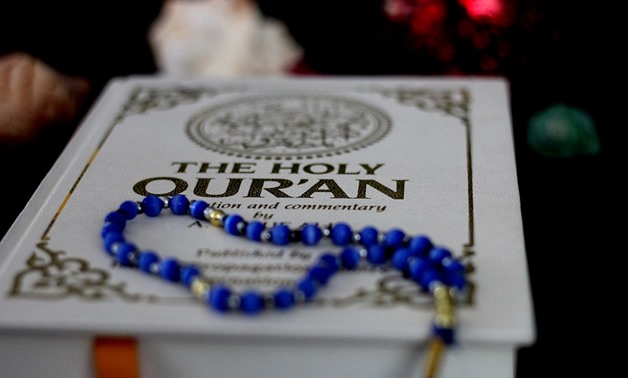
The Holy Quran - CC via Pixabay/ Tariq786
CAIRO - 27 January 201: Following allegations made by the U.S. Congress regarding violations committed against Coptic Christians in Egypt, Egypt Today provides evidence of Islam’s preservation of Christians’ rights.
Recently, Egypt’s Minister of Endowments Mokhtar Gomaa said that the protection of churches is as legitimate as defending mosques, stressing that those who died in the defense of a church are martyrs.
Religious freedom is a well-known Islamic principle. {There is no compulsion in religion; the right direction is clearly distinguished from the wrong} (Quran 22:56) . So it’s clear that each person should be allowed to find their own path in life. People of other religions are free to practice their own faith, as Islam does not force any one to embrace it.
Not only does Islam demand their freedom to practice religion, but also that they be treated justly and kindly as any other fellow human. {Allah forbids you not, with regard to those who fight you not for (your) Faith nor drive you out of your homes, from dealing kindly and justly with them: for Allah love those who are just} (Quran 60:8) .
Regarding the protection of churches, Allah says, {Did not Allah check one set of people by means of another, there would surely have been pulled down monasteries, churches, synagogues, and mosques, in which the name of Allah is commemorated in abundant measure. Allah will certainly aid those who aid his (cause)} (Quran 22:40) .
Islamic scholar Ibn Khuwaiz stated that this verse included the prohibition of demolishing the churches of non-Muslim citizens, their temples, and their houses of worship.
One of the best examples of strictly safeguarding the rights of non-Muslims and their freedom to practice their religions in early Islamic history was the practice of Umar Ibn Al-Khattab, the second caliph of Islam. Umar was particularly sensitive to the demands of justice concerning non-Muslims living under his authority. In a famous story, Umar was invited by the patriarch of the Church of the Holy Sepulcher in Jerusalem to pray inside the church. Umar refused, however, not out of reluctance to pray inside a church, but rather because he feared some ignorant Muslims might seize the church after him and turn it into a sort of shrine.
“If I prayed inside the church, the Muslims after me would take it and they would say: ‘Umar prayed here’,” Ibn Al-Khattab said.
This church still exists today in Jerusalem as the headquarters of the Eastern Orthodox Patriarch of Jerusalem, even though it was under the authority of Muslims for centuries.
In one of the most eye-catching scenes in Egypt during the January 25 Revolution, some Egyptian Muslims were seen guarding Coptic churches while Christians pray, and, on Friday, Christians were guarding the mosques while Muslims prayed.
The recently published book "The Covenants of the Prophet Muhammad with the Christians of the World", written by Canadian religious authority, academic, and activist John Andrew Morrow, begins with a reference to these mostly neglected "literary monuments in the history of Islam." The author comments:
"Considering that the continued conflict between Christians and Muslims across the world has been artificially ignited by the forces of imperialism, especially in Africa, the Middle East and Asia, the content of these priceless historical documents can shed light on the early history of Islam. Via this information we are witness to the primordial relationship between Muslims and People of the Book. Thus, these covenants can serve as a source of inspiration for the establishment of insuperable harmony between the three Abrahamic religions: Judaism, Christianity and Islam."
Extremists of both the Muslim and Islamophobic non-Muslim varieties try to ignore, or even deny, the covenants of the Prophet Muhammad (peace be upon him), but all accept the authenticity of the Constitution of Medina. There is no doubt that in this there was a clear paragraph:
"The Jews of Banu 'Awf are one community with the believers; the Jews have their religion and the Muslims have theirs; their freedmen and their persons except those who behave unjustly and sinfully, for they hurt but themselves and their families."
The second paragraph of the covenant of the Prophet Muhammad with the Assyrian Christians states, "To the followers of Islam I say: Carry out my command, protect and help the Nazarene nation in this country of ours in their own land."
The significance of these words is that the Prophet Muhammad (peace be upon him) recognized the Nazarenes (Christians) as a people and a nation existing among of the people.
Thus, it’s obvious that Islam guarantees the protection of Jews, Christians, and other non-Muslims who reside in Muslim lands. Their houses of worship should be defended from attack and their right to worship according to their choice respected.

Comments
Leave a Comment